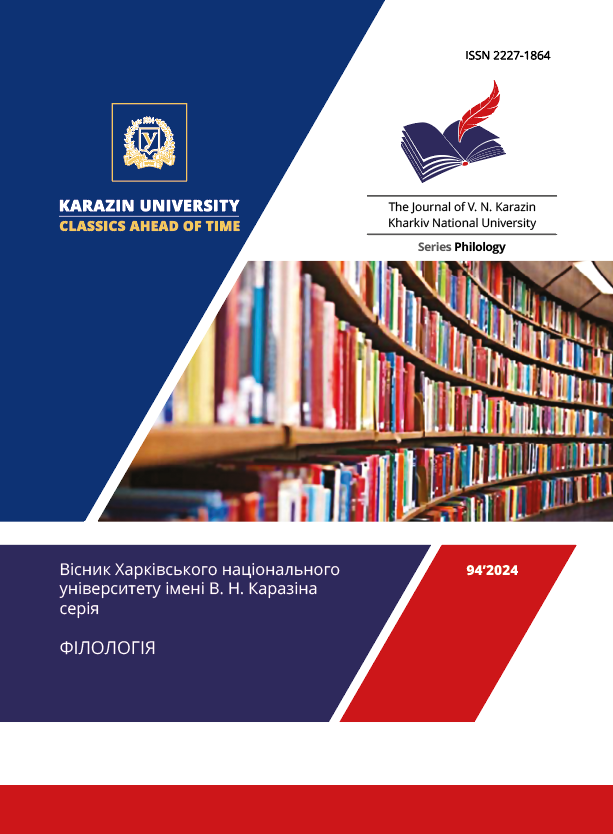The concept of “wise” in Russian journalistic discourse
Abstract
The article is devoted to the study of the concept "wise" in the Russian journalistic discourse. The object of the study is the semantics and conjugation of the word "wise" in newspaper texts. The subject of the study is the cognitive features of the concept "wise", which are revealed in the conjugation of the adjective мудрый in Russian-language journalistic texts.
The purpose of the work is to reveal the cognitive features of the concept "wise" in the journalistic discourse. The empirical basis of the research was made up of the materials of the newspaper subcorpus of the National Corpus of the Russian language.
The results of the analysis made it possible to conclude that the concept "wise" in the Russian journalistic discourse includes a number of cognitive features and can characterize people or describe actions. First of all, this concept is related to intellectual perfection: if a person can make the right decision or behave correctly, then he is considered wise. Among the various professional categories of people, leaders, politicians, teachers and artists are most often recognized as wise. This circumstance may indicate that wisdom is determined not only by a high level of human intelligence, but also by the ability to influence other people, to transfer one's knowledge and experience. As a rule, wisdom is the result of life experience gained over a long time, so the word мудрый is often found in combination with the adjectives опытный and старый. Wise people have high moral qualities such as kindness, decency and patience. At the same time, very rarely in journalistic discourse (in contrast to discourses of other types) wisdom is associated with self-interested pragmatism and cunning. The sign "wise" can be metonymically transferred from subjects to decisions, actions, actions. At the same time, rational solutions that allow improving the state of affairs, overcoming difficulties, and peacefully exiting a conflict situation are recognized as wise. Language actions and their results (words, sayings, advice, rules, etc.) are often characterized by wisdom.
Downloads
References
Askoldov, S. A. (1997) The concept and word.Russian language: From the theory of language to the structure of the text: Anthology / pod obsch. ed. V. P. Neroznaka. Moscow: Academia. P. 267–279. [in Russian].
Vorkachev, S. G. Wisdom in the text of the Bible. URL https://cyberleninka.ru/article/n/mudrost-v-tekste-biblii. [in Russian].
Dmitrieva, N. M., Lintovskaya E. M. (2016) Ethical content of the concept of "wisdom" in the Russian language picture of the world. Herald of Orenburg University. No. 2 (190). P. 78–82.[in Russian].
Kishchenko, N. D. (2019) Verbalization of the concept of wisdom in the context of an English-language author's fairy tale. Scientific notes of the National University "Ostroh Academy": series "Philology". Ostrog: Publication of NaUOA. Issue 5(73).P. 141–143.[in Ukrainian].
Kishchenko, N. D. (2017) Verbalization of the WISDOM concept in the discourse of an English-language author's fairy tale: autoref. thesis for obtaining sciences. candidate degree philol. Sciences: 10.02.04 "Germanic languages". Kyiv. national language Univ. Kyiv. 20 p.[in Ukrainian].
Kolesov, V. V. (2016) The Concepts оf Mind (Ум), Reason (Рассудок), Intellect (Разум) и Wisdom (Мудрость) in the Conceptual Field Consciense. Humanitarian Vector. Series Philology, Oriental Studies. Vol. 11, No 3. P. 75–86. [in Russian].
National Corpus of the Russian Language URL: https://ruscorpora.ru/[in Russian].
Hu, Xiaoyan(2023) The concept of "Wisdom" in a Russian fairy tale. Bulletin of Kharkiv National University named after V. N. Karazin. Series "Philology". Vol. 93.. P. 84–89.[in Ukrainian]. URL: https://doi.org/10.26565/2227-1864-2023-93-13.




